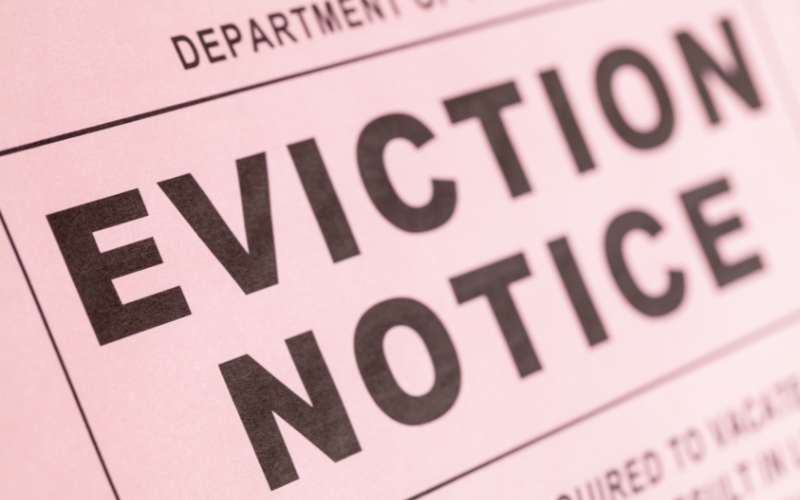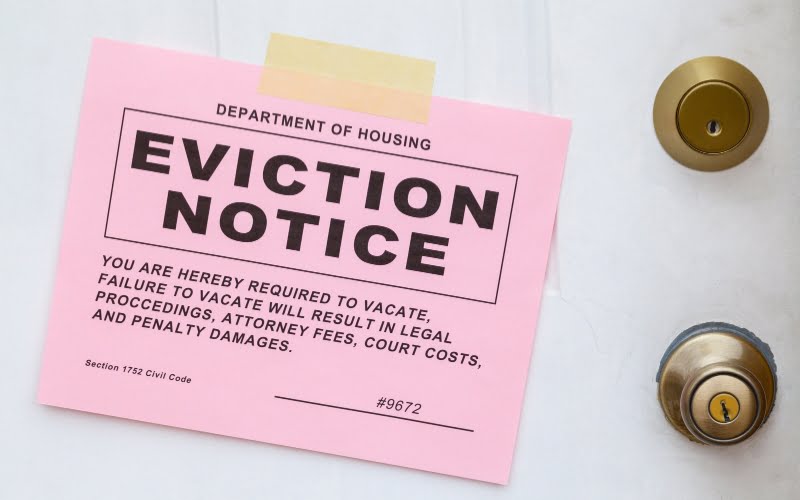Last Updated on March 18, 2024 by Kelvin Nielsen
If you’re in a situation where you need to evict a family member in Delaware, it can be a difficult and emotional process. However, sometimes it’s necessary to take legal action to remove a family member who is causing harm or disrupting the household.
Understanding Delaware eviction laws and following the proper steps can help you navigate this process with as little stress as possible.
Delaware has specific laws regarding tenant-landlord relationships, even when the tenant is a family member. It’s important to understand these laws and follow them carefully to ensure that the eviction process is legal and fair. Failure to follow the proper procedures can result in legal consequences, so it’s important to take this process seriously and seek legal advice if necessary.
Practical steps to evict a family member in Delaware include serving your family member with a written notice to vacate, filing a complaint with the court, attending a hearing, and obtaining a writ of possession if necessary. Following these steps carefully and seeking legal advice when needed can help you successfully evict a family member in Delaware while minimizing stress and legal consequences.
Key Takeaways
- Evicting a family member in Delaware can be a difficult and emotional process.
- It’s important to understand Delaware eviction laws and follow the proper procedures carefully.
- Practical steps to evict a family member include serving a notice to vacate, filing a complaint with the court, attending a hearing, and obtaining a writ of possession if necessary.
Understanding Delaware Eviction Laws
If you need to evict a family member in Delaware, it’s important to understand the state’s eviction laws. Here are the key points you need to know:
Grounds for Eviction
Delaware law allows landlords to evict tenants for a variety of reasons, including non-payment of rent, violation of lease terms, and damage to the property. In the case of evicting a family member, the grounds for eviction may be different depending on the circumstances.
For example, if the family member is living in the property without paying rent, you may be able to evict them for non-payment of rent. If the family member is violating the terms of a written lease agreement, you may be able to evict them for lease violation.
Notice Period Requirement
Before you can begin the eviction process, you must provide the family member with written notice of the eviction. The notice period requirement varies depending on the reason for the eviction.
For example, if the eviction is for non-payment of rent, you must provide the family member with a 5-day notice to pay rent or quit. If the eviction is for lease violation, you must provide the family member with a 7-day notice to cure or quit. If the family member fails to comply with the notice, you can then proceed with the eviction process.
Eviction Process
The eviction process in Delaware involves several steps. First, you must file a complaint with the court and serve the family member with a summons and complaint.
The court will then hold a hearing and issue a judgment. If the judgment is in your favor, a writ of possession will be issued and a constable will return possession of the property to you. It’s important to note that the eviction process can take several weeks or even months, so it’s important to be patient and follow the proper procedures.
Overall, evicting a family member in Delaware can be a complicated and emotional process. However, by understanding the state’s eviction laws and following the proper procedures, you can ensure that the process goes as smoothly as possible.
Practical Steps to Evict a Family Member
If you have a family member living with you who you need to evict in Delaware, it’s important to understand the legal process. Here are the practical steps you need to follow to evict a family member in Delaware.
Consulting a Lawyer
Before you start the eviction process, it’s important to consult with a lawyer who is well-versed in landlord-tenant law in Delaware. A lawyer can help you understand the legal requirements for evicting a family member and ensure that you follow the proper procedures.
Serving the Eviction Notice
The first step in the eviction process is to serve the family member with an eviction notice. In Delaware, the notice must be in writing and state the reason for the eviction. The family member must be given at least seven days to vacate the property.
Filing an Eviction Lawsuit
If the family member does not leave the property within seven days, you can file an eviction lawsuit in court. You will need to provide evidence that the family member was served with the eviction notice and that they have not vacated the property.
Once the eviction lawsuit is filed, a court date will be set. If the court rules in your favor, the family member will be given a certain amount of time to vacate the property. If they do not leave within that time, you can obtain a writ of possession to have them removed from the property.
Conclusion
Remember to always follow the proper legal procedures when evicting a family member in Delaware. It’s important to consult with a lawyer, serve the eviction notice, and file an eviction lawsuit if necessary.
Disclosure: The content herein isn’t a substitute for advice from a professional attorney. It’s only meant to serve educational purposes. If you have a specific question, kindly seek expert attorney services.
Sources: 5 Day Eviction Notice in Delaware: Understanding the Process, What Is A 30-Day Notice to Vacate in Delaware?, Delaware Landlord Tenant Laws,

Amanda Rose is a seasoned landlord with 13+ years of expertise in overseeing diverse properties. Her adept management spans single and family homes, along with multi-family apartments and condos, across Wyoming and South Dakota. Her commitment and proficiency have cemented her status as a thriving property management professional.
She is a member of the following organizations: Wyoming Landlord’s Association, National Association of Residential Property Managers (NARPM), Wyoming Apartment Association, South Dakota Multi-Housing Association (SDMHA), and South Dakota Landlord Association (SDLA).







